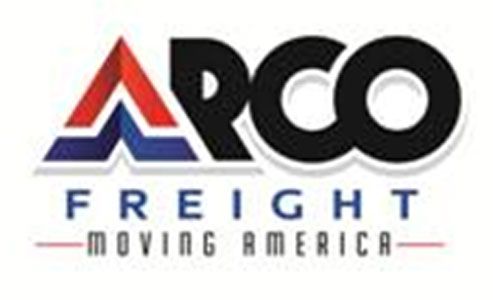Flatbed Freight Shipping 101: Everything You Need to Know
Flatbed freight shipping is a fundamental aspect of the transportation industry that plays a crucial role in moving a wide variety of goods across the country. Whether you're new to the world of logistics or looking to expand your knowledge, understanding the basics of flatbed freight shipping is essential. In this comprehensive guide, we'll break down the essentials, covering everything from the different types of flatbed trailers to the safety considerations, cost factors, and emerging trends in the industry.
The Basics of Flatbed Freight Shipping
Flatbed freight shipping, as the name suggests, involves transporting cargo on a flat, open-deck trailer without the constraints of enclosed walls or roofs. It's a versatile method of transportation that is particularly well-suited for oversized, heavy, or irregularly shaped cargo. Flatbed shipping is commonly used in industries like construction, manufacturing, and agriculture, where standard shipping containers or dry vans may not be suitable due to cargo size or shape.
One of the key advantages of flatbed shipping is its flexibility. It allows for the transportation of goods that wouldn't fit into traditional containers. Whether it's construction equipment, large machinery, steel beams, lumber, or even oversized vehicles, flatbed freight shipping can accommodate a wide range of cargo types.
Types of Flatbed Trailers
Flatbed trailers come in various configurations to meet the diverse needs of shippers and carriers. The two primary categories are open-deck and closed-deck flatbeds.
Open-deck flatbeds, also known as "conventional flatbeds," have no roof or walls, providing complete access to load cargo from the top or sides. These are ideal for cargo that can be easily secured with straps, chains, or other means.
Closed-deck flatbeds, on the other hand, have a partial or fully enclosed structure to protect the cargo from the elements. They are often used for more sensitive or valuable freight that requires added security.
In addition to open-deck and closed-deck flatbeds, there are specialized flatbed trailers such as step-deck, double-drop, and removable gooseneck (RGN) trailers. Each type serves specific purposes and caters to different cargo requirements. Choosing the right flatbed trailer is crucial to ensure the safe and efficient transport of your goods.
Flatbed Freight Shipping Process
The flatbed freight shipping process involves several key steps, from booking a shipment to delivering the cargo to its destination. Understanding these steps is essential for both shippers and carriers.
Booking and arranging flatbed shipments start with identifying the cargo's dimensions, weight, and special handling requirements. Shippers must provide accurate information to carriers to ensure the right trailer type and equipment are selected.
Loading and securing cargo on a flatbed is a critical step to prevent shifting or damage during transit. Properly securing the cargo with straps, chains, or specialized equipment is crucial to ensure safe transportation.
Understanding weight limits and regulations is another important aspect of flatbed shipping. Various federal and state regulations govern weight restrictions and load distribution to maintain safety on the road. Compliance with these regulations is essential to avoid fines and accidents.
Documentation and permits required for flatbed shipping include bills of lading, permits for oversized loads, and any other necessary paperwork. Ensuring that all documentation is in order is essential to prevent delays and legal issues during transit.
Safety and Security Considerations
Safety is paramount in flatbed freight shipping, as improperly secured cargo can pose serious risks to drivers and other road users. Here are some safety and security considerations to keep in mind:
- Securing and protecting cargo on a flatbed is a crucial aspect of safety. Use the appropriate equipment, such as straps, chains, and tarps, to secure the cargo effectively.
- Safety precautions for loading and unloading include using proper lifting techniques, wearing protective gear, and ensuring a stable surface for loading and unloading activities.
- Compliance with safety regulations is essential to prevent accidents and injuries. Carriers and drivers must adhere to federal and state safety regulations, including hours of service and load securement guidelines.
- Insurance and liability in flatbed shipping should not be overlooked. Shippers and carriers should have appropriate insurance coverage to protect against potential damages or losses during transit.
Cost Factors in Flatbed Shipping
Understanding the cost factors associated with flatbed freight shipping is crucial for effective budgeting and cost management. Several factors can impact the overall cost of flatbed shipping, including:
- Distance: The distance the cargo needs to travel is a significant factor in determining shipping costs. Longer distances generally result in higher transportation costs.
- Cargo Dimensions: The size and weight of the cargo play a significant role in pricing. Oversized or heavy cargo may incur additional fees.
- Type of Trailer: The type of flatbed trailer used for transportation can affect costs. Specialized trailers or equipment may come at a premium.
- Loading and Unloading: The complexity and time required for loading and unloading cargo can impact costs. Efficient loading and unloading processes can help reduce expenses.
- Route: The chosen route can affect costs due to factors like tolls, road conditions, and fuel consumption.
- Market Conditions: Market demand and supply fluctuations can influence shipping rates. Being aware of market conditions can help shippers negotiate competitive rates.
Strategies to optimize shipping costs include
- Route Planning: Careful route planning can help minimize travel distance and reduce costs. Using GPS and route optimization software can be beneficial.
- Cargo Consolidation: Combining multiple shipments when possible can help maximize trailer space and reduce costs.
- Negotiating Rates: Shippers should engage in negotiations with carriers to secure favorable rates.
Comparing flatbed shipping costs with other modes, such as dry van or intermodal transportation, can help shippers make informed decisions based on their specific needs and budget constraints.
Challenges in Flatbed Freight Shipping
While flatbed freight shipping offers many advantages, it also comes with its fair share of challenges. Being aware of these challenges and knowing how to address them is essential for successful transportation:
- Weather-related challenges, such as rain, snow, and high winds, can affect cargo and road conditions. Properly securing and protecting cargo is crucial to prevent weather-related damage.
- Route planning and accessibility issues may arise when dealing with oversized or irregularly shaped cargo. Ensuring that the chosen route can accommodate the cargo's dimensions is essential.
- Handling oversized or irregularly shaped cargo requires specialized equipment and expertise. Shippers must work with experienced carriers to ensure safe transportation.
- Regulatory and compliance challenges can be complex, especially when transporting oversized loads. Shippers and carriers must stay informed about state and federal regulations and obtain the necessary permits.
Emerging Trends and Technologies
The world of flatbed freight shipping is continuously evolving, with emerging trends and technologies shaping the industry's future. Some key trends and innovations to watch for include:
- Technology innovations in flatbed shipping, such as the use of GPS tracking, electronic logging devices (ELDs), and load optimization software, are enhancing efficiency and visibility in the supply chain.
- Sustainability and eco-friendly initiatives are becoming more prevalent in the industry. Carriers are adopting fuel-efficient technologies and exploring alternative fuels to reduce their carbon footprint.
- The future prospects for the flatbed shipping industry are promising, with continued growth anticipated as various sectors rely on flatbed transportation for their oversized cargo needs.
Tips for Success in Flatbed Freight Shipping
To excel in flatbed freight shipping, both shippers and carriers can benefit from the following tips:
- Best practices for shippers and carriers include effective communication, timely documentation, and a commitment to safety and compliance.
- Finding reliable flatbed carriers is essential. Shippers should research and partner with carriers that have a strong track record and experience in handling their specific cargo.
- Building strong relationships in the industry can lead to better collaboration and more efficient transportation solutions.
Conclusion
In conclusion, flatbed freight shipping is a critical component of the logistics industry, offering flexibility and versatility for transporting oversized or irregularly shaped cargo. Understanding the basics of flatbed shipping, from trailer types to safety considerations and cost factors, is essential for shippers and carriers alike.
As the industry continues to evolve with emerging trends and technologies, staying informed and adaptable is crucial for success. By following best practices and building strong relationships within the industry, businesses can navigate the challenges and reap the benefits of flatbed freight shipping. Whether you're a seasoned professional or new to the field, this guide has provided you with the essential knowledge needed to embark on a successful flatbed shipping journey.
If you're in Jerome, ID, and looking for a reliable flatbed freight shipping service provider, we recommend contacting
Arco Freight at
208-324-4706. They have a proven track record of providing top-notch services in the region, and they can assist you with all your flatbed shipping needs.
FAQ’s










